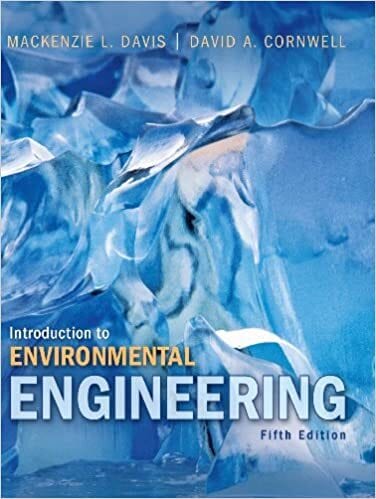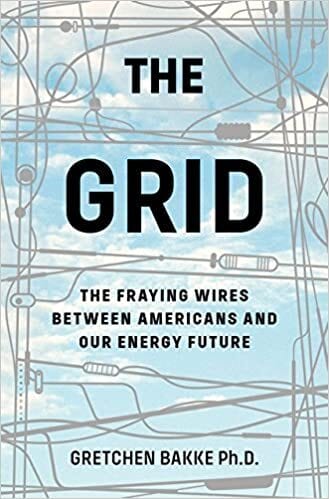Over the years, it’s become more crucial to confront our planet’s environmental issues. You may have seen the massive “islands” of waste floating in the far reaches of the Pacific Ocean. How long until that becomes the norm? How do we ensure clean water and air for everyone? These are the questions you’ll seek to resolve as you learn environmental engineering.
Through environmental engineering, we have a better chance of turning the tide against ecological destruction. Pollution control, waste management, and water purification are all steps to ensure our species lasts on this planet. But what is environmental engineering exactly? Well, it’s a bit more involved than becoming a park ranger.
In this article, we’ll go over the scope and nature of environmental engineering. We’ll walk you through its uses to the career opportunities it offers and the resources you’ll need to unlock these. We have a lot to cover so let’s dive right in!
What Is Environmental Engineering?
Environmental engineering is a subfield of chemical and civil engineering that aims to improve and protect the environment. This includes finding ways to cut air pollution and provide clean drinking water.
Environmental engineering is older than you might think. Even the oldest civilizations have all engaged in massive efforts to ensure people have access to clean air and water. It was a matter of life and death.
Environmental engineers work in nearly every type of surrounding. They may find themselves behind desks, in laboratories, or the field.
What Is Environmental Engineering Used For?
Overall, the main goal of an environmental engineer is to solve environmental problems using scientific and engineering methods. Let’s explore the different initiatives that an environmental engineer works on.
- Pollution control. If you have ever seen the oppressive smog blanketing cities like Beijing, Shanghai, and Los Angeles, then you will understand this issue’s scale. Environmental engineers find the best way to cut carbon emissions and lower the output of harmful gas, to name a few. Pollution control is arguably one of the most important duties they work on. After all, without good air quality, sustaining life becomes next to impossible.
- Waste management. Managing hazardous waste can prevent catastrophe. Engineers use their knowledge to best prepare for and avoid chemical spills, soil erosion, and more. By engaging in effective waste disposal, communities remain safe.
- Improving public health. Humanity and the natural environment are interconnected. Put another way, protecting the environment also protects society. Environmental engineers focused on this issue take the population’s health and well-being into the highest account.
- Clean water. Water is the essence of life. So it should be no surprise that there are engineers hard at work guaranteeing clean water. Ridding water of toxins allows people to bathe and drink without worry.
Types of Environmental Engineering
Environmental engineering is extremely varied. Some environmental engineers dedicate themselves to water treatment, while others leverage chemistry to improve soil conditions. Let’s look at the different areas that the field covers.
Water Engineering
Water engineering deals with the interaction between bodies of water and living organisms. It covers a few crucial areas, including:
- Ensuring clean water supplies
- Analyzing impacts on farming
- Water as a natural resource
Transport Engineering
Traveling around the world can be a costly endeavor, both financially and environmentally. Environmental engineers partake in studies, data collection, and analysis to cut the ecological cost of mass transit. Ultimately, they control pollution through effective urban planning and land-use forecasting.
Air Pollution Control
Clean air is also essential to a functioning society. This specialization aims to cut emissions and allow everyone to breathe easier. These engineers focus on flue gas from industry and vehicle exhaust, both of which are detrimental to the environment.
Learning Environmental Engineering
We all know what the environment is, but how much do you know about it? Sure, there are thunderstorms, tornadoes, and pollution. But do you know the best way to create a cleaner, more livable Earth?
Learning environmental engineering takes your prior knowledge of the environment and enhances it with math and science. Let’s walk you through the process.
How Long Does It Take to Learn Environmental Engineering?
It generally takes four to five years to learn environmental engineering. Environmental engineering follows a more conventional path than other fields. That is, pursuing a bachelor’s degree in the field is usually the first step.
While many environmental companies look for degree holders, you can boost your chances of landing a job through practical experience. Think, apprenticeships for environmental science and engineering.
How to Learn Environmental Engineering: Step-by-Step
It only makes sense for such a varied field to offer a winding road towards mastery. Below are some ways to fast-track your way to the top.
- Learn engineering principles. Engineering is a vast field of different specializations. If you are already pursuing one of the many types of engineering, consider learning about the environment to make a difference.
- Earn an environmental engineering degree. Earning a bachelor’s degree in the field opens new career avenues and exposes you to valuable industry knowledge.
- Join engineering programs or camps. Gaining practical experience always adds value to your growth. This is especially true for environmental engineers. Many learning institutions offer various work programs to immerse students in the work of an environmental engineer. Many ecological agencies welcome those with practical experience.
- Pursue a career in professional engineering. According to the Bureau of Labor Statistics, environmental engineers enjoy a median salary of nearly $90,000. The states with the highest number of hires are Alaska, Montana, Wyoming, and Oklahoma.
The Best Environmental Engineering Courses and Trainings
Let’s explore some online environmental engineering courses you can take to further your knowledge.
The Best Online Environmental Engineering Courses
Everything is online now. That also applies to learning the essentials of environmental engineering. Here are some great options for you to explore.
Energy Production, Distribution, and Safety Specialization
- Provider: Coursera, the University at Buffalo, and the State University of New York
- Duration: 4 months
- Prerequisites: None
Through the University of Buffalo, students learn all about energy, its production, and its uses. Taught by a team of accomplished professors, this course will guide participants through four different modules:
- Electric power systems
- Natural gas
- Safety in the utility industry
- Energy: The enterprise
This course also includes a hands-on project for a holistic learning experience.
Climate Change and Health: From Science to Action Specialization
- Provider: edX and Yale University
- Duration: Approximately 3 months
- Prerequisites: None
- Cost: $100
Have you ever wanted to experience learning at Yale? Here’s your chance. Taught by epidemiology professor Robert Dubrow, this course delves deep into the dark implications of climate change.
Aside from being an educational tool, this online course doubles as a valuable call to arms for all citizens. This is perfect for aspiring environmental engineers as it posits different ways to improve upon previous environmental strategies. It also gives you the communication tools needed to assist communities.
Best Free Environmental Engineering Courses
If you are tight on money, here are some professional environmental engineering courses that come without a fee.
Drinking Water Treatment
- Provider: edX and Delft University of Technology
- Duration: 7 weeks
- Prerequisites: None
This course allows students to explore the intricacies of urban water supplies, clean water, and the different regulations of water treatment plants. Students participate in four different modules, namely:
- An introduction to clean water
- Various water qualities
- Groundwater treatment
- Surface water treatment
By the end of the program, students will have a better grasp of what constitutes clean water and how to achieve it.
Solar Energy
- Provider: edX and Delft University of Technology
- Duration: 8 weeks
- Prerequisites: None
What better way to learn about the benefits our sun has to offer than taking this course? Through the Delft University of Technology, students take an exciting and informative journey learning about solar energy.
Not only is this an environmental engineering course, but it also serves as a valuable resource in electrical engineering. Students will learn all about photovoltaic devices and how they conduct electricity through solar rays. They will also learn about why solar energy is a much preferable energy source to fossil fuels.

"Career Karma entered my life when I needed it most and quickly helped me match with a bootcamp. Two months after graduating, I found my dream job that aligned with my values and goals in life!"
Venus, Software Engineer at Rockbot
Through the eight-week course, students partake in various assignments and exams to test their knowledge about critical concepts, including:
- Photovoltaic technologies
- Semiconductors
- Application and design
Best Environmental Engineering Books
Some people learn best by reading books. Fortunately, there is an abundance of texts on the environment and, most importantly, what we can do to save it.
Introduction to Environmental Engineering, Mackenzie Davis & David Cornwell

This definitive text on environmental engineering introduces the layman to ecological basics. Using science and engineering, the authors put forth all the essential environmental knowledge you need to know.
This includes detailed readings on EPA regulations and violations along with tons of practice problems. If you want both a comprehensive textbook and resources to work out real-world problems, this is the perfect reading material.
The Grid: The Fraying Wires Between Americans and Our Energy Future, Gretchen Bakke

This fascinating book examines what the future of our natural world might hold. Specifically, Bakke examines the significance of something we mostly take for granted in our daily lives: the power grid.
She goes into the historic triumph of America that is the extensive power grid, but also how it impedes our progress. So, how do environmental engineers overcome this bulky, environmentally hazardous artifact? You’ll need to read it to find out.
This exciting look at American society is a great way to discover the potential issues you’d face as a professional engineer.
Best Online Environmental Engineering Resources
Need a refresher or a go-to resource about environmental engineering? Below are a few great online resources to choose from.
Learning Path: Free Online Environmental Engineering Courses from Top Universities

Are you tired of ferreting out particular courses that line up with your interests? Why not explore free and open courses provided by distinguished learning institutions in the world?
You can learn about ecology at MIT, Purdue University Global, and the University of Pennsylvania. There is no shortage of relevant topics here, including water treatment, environmental microbiology, and transport processes.
Preventing Flint – Environmental Engineering: Crash Course Engineering #29

Launched by the famous author John Green, Crash Course is an ever-growing, popular series of videos that aim to inform. What started with Crash Course History has quickly evolved into other subjects like mathematics, science, and engineering.
This is a great introduction video on the topic and is a significant first step in your journey towards professional engineering. Using the harrowing example of the Michigan water crisis, the narrator concisely lays down environmental engineering principles.
Most importantly, the video explores how both ecological science and professional engineering combat one of the most dangerous crises we face. Filled with amusing animations and easy-to-understand concepts, we recommend starting with this Crash Course video from PBS.
Should You Study Environmental Engineering?

So, what makes environmental engineering the right job for you? If you are passionate about public health and sanitation, then learning environmental engineering may be perfect for you.
Make sure you do your research about the field’s nuances to get a better grasp of what direction to take. Take a look at all of our resources to find great ways to start your journey. Through hard work, diligence, and dedication, anyone can make a difference in the face of climate change.
Environmental Engineering FAQ
The Bureau of Labor Statistics projects a 3 percent job growth for environmental engineers between 2019 and 2029. This is equivalent to around 1,700 new job opportunities. Behind the growth is the demand for environmental engineers who can design water and wastewater treatment facilities and develop regulations for coal-fired power plants.
No, although it is strongly encouraged. Consider taking a Master of Science (MSc) in Environmental Engineering to boost your employability and gain access to more job opportunities. For instance, a graduate degree makes you eligible to teach at colleges and universities. A bachelor’s degree is enough to qualify for an entry-level engineering role.
Environmental engineers earned an average of $88,860 in 2019. The top 10 percent made over $140,000 while the bottom 10 percent earned less than $55,000.
No, as long as you’re only looking to fill an entry-level role. Get a Professional Engineering license once you’re ready to move on to higher roles, such as managerial roles.
About us: Career Karma is a platform designed to help job seekers find, research, and connect with job training programs to advance their careers. Learn about the CK publication.



